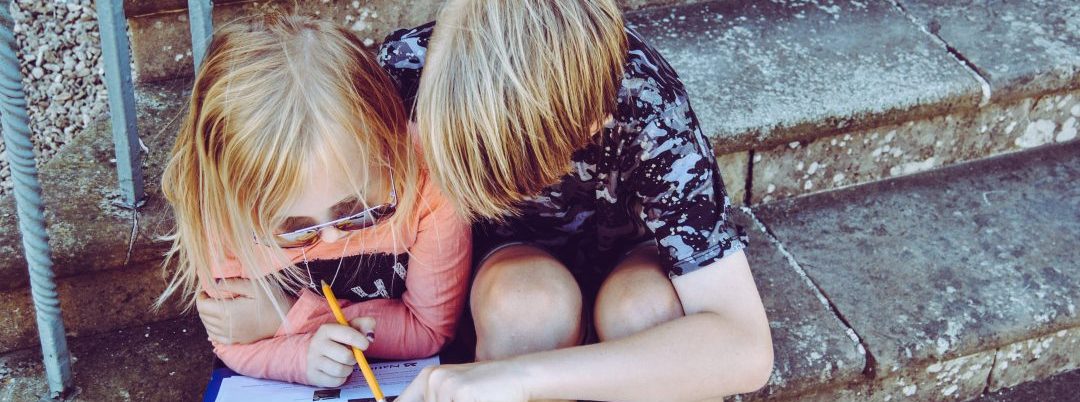
- It’s important you understand it yourself before educating your kids on bullying: for instance, bullying doesn’t just occur at school but in the household.
- Oftentimes, bullies are created in the household after they are bullied themselves by family members, like parents and siblings.
- You can spot sibling bullying by keeping an eye out for the following telltales: the child is scared to be alone with their sibling, they have mysterious bruises, or the aggressive sibling has verbalized hostilities or displayed otherwise aggressive/violent behavior.
- Now to addressing sibling bullying: encourage open communication and define clear expectations as well as rules for acceptable behavior in your household.
- Additionally, make a point to spend quality time with each of your children individually, so that they get their own special time with you.
Talking to your kids about bullying isn’t the easiest thing to do… especially if you don’t quite understand bullying yourself. Before you initiate this conversation with your kids, brush up on your own bully knowledge. Julia Cook, children’s author and parenting expert, can help. She says that bullying is “aggressive, hurtful behavior that involves an imbalance of power,” which can have very serious consequences: kids who are bullied suffer from low self-esteem, depression, and suicidal thoughts, just to name a few. Next you should familiarize yourself with how and where bullying occurs… as it doesn’t happen solely in the hallways at school. In fact, the real breeding ground for bullying is in the household.
Bullying in the Household
Dr. Fran Walfish—Beverly Hills family and relationship psychotherapist, author of The Self-Aware Parent, and regular expert child psychologist on The Doctors, CBS TV—explains that bullies are typically created at home, as they’re bullied by close family members, which is where their rage and cruel behavior stems from:
“All bullies carry a secret that they personally have been the target of bullying, mistreatment, and mishandling by someone most likely within their family. That important someone is usually their father or mother, and in less frequent instances, an older sibling. Oftentimes, the mistreatment is abusive—emotionally or physically. The child who is the victim in his own family cannot hold or contain the hostility and his rage, becoming the bully. He goes to school or out in the world and looks for an easy target. Then, he expels his hostilities onto another innocent victim. It is a vicious cycle.”
Warning Signs of Sibling Bullying
As Dr. Fran mentioned, kids are sometimes bullied in their own homes by their siblings. And though this might not occur as often as bullying in school, it can still have detrimental effects on the victims, as seen in recent research from the University of Warwick. This study explored the link between sibling bullying and the development of psychotic disorders by assessing approximately 3,600 individuals over the course of six years. Upon the researchers assessment, they found that kids who are bullied by their siblings are up to three times more likely to develop a psychiatric disorder during adulthood. Keep sibling bullying out of your home and watch for these four warning signs of sibling bullying, identified by Dr. Fran:
- The child has expressed fear of being alone with their sibling.
- They have visible bruises or marks.
- The aggressor has verbalized hostilities and/or jealousy.
- The aggressor has a fascination with fire or hurting animals.
How to Address Sibling Bullying: 4 Steps
If you’ve observed any of the above signs of sibling bullying, you need to take the appropriate steps to address and stop it. Dr. Fran says if you take the following four important steps, you’ll be on your way to creating a happier, healthier home for the whole family:
- Have an open discussion about equal love and zero tolerance for violence.
- Define acceptable and unacceptable behavior within your family.
- Set clear, firm rules and consequences for unacceptable behavior.
- Establish quality time with each child individually to build upon trust and bonding.
Let’s keep in touch! Sign up to receive our newsletter:
Start a Relationship with An Exceptional Counselor
- Skilled and caring professional counselors
- Accepting all major and most insurances
- High-touch customer service & premium benefits
- Same- or next-day appointments
- Ultra-flexible 23.5hr cancellations













